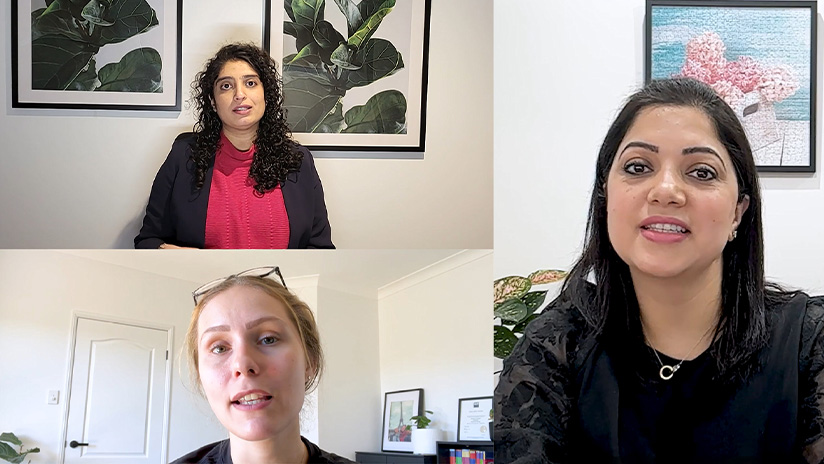Beyond the code: The human element of our cyber security operations
Whether you’re a graduate figuring out your career pathway or an IT professional curious about a career in cyber security, this one’s for you.

While I started with an interest in software engineering, I’ve since decided to focus my energies on building a strong career in cyber security. Here’s what I have learnt along the way.
Emerging technologies and innovations in cyber security
Some of the most thrilling advancements in cyber security right now revolve around the integration of artificial intelligence (AI), enhancements in quantum computing security and open-source software (OSS) security.
AI in cyber security is truly a game changer: it offers unparalleled capabilities in detecting and responding to threats by analysing vast datasets very quickly and accurately. This not only enhances threat detection but also automates complex processes for quicker response times, dramatically improving security operations.
Quantum computing presents both a challenge and an opportunity in cyber security. As these powerful machines develop, they could potentially break traditional encryption methods, prompting the need for quantum-resistant cryptography.
Additionally, as reliance on open-source software increases, securing these ecosystems has become critical. Innovations in OSS security practices and tools are crucial to safeguard against vulnerabilities that could be exploited in widely used software components, ensuring the integrity and security of applications across industries. These areas are rapidly evolving, promising significant impacts on how security is implemented and managed.
Key skills and qualities for a successful career in cyber security
Having a strong foundational understanding of the underlying technologies such as networks, web applications and databases is crucial. Deep technical knowledge allows cybersecurity professionals to effectively safeguard systems and anticipate potential vulnerabilities.
But it’s not just about using security tools. You must also understand how and why they work, enabling you to adapt quickly when new threats emerge. Moreover, while technical acumen is important, truly successful cybersecurity professionals also possess strong analytical skills.
Critical thinking is another indispensable quality, enabling practitioners to evaluate risks accurately and make decisions swiftly under pressure. Effective communication skills are vital too, as cybersecurity is a collaborative field where one must often explain complex concepts to non-technical stakeholders to ensure the organisation's security posture is robust and responsive.
Together, these skills and qualities create a well-rounded cybersecurity professional capable of protecting digital assets against ever-evolving threats.
My journey in cyber security
As for me, it was my interest in software engineering that led me to cyber security. An early start in a part-time sales role at Telstra while studying for a Bachelor's in Information Technology made it easier for me to transition into a Software Engineer intern role, where I became part of Telstra’s DevSecOps team.
Today, as a member of our Cyber Innovation team within our Cyber Security department, I have a deep sense of responsibility and respect for the work we do to reinforce and protect our cyber security framework.
I lead our Security Champions Program, an initiative to embed secure coding practices across our developer teams. Every fortnight, I convene a forum within this community so we can discuss the latest cyber security trends and practices, and bring valuable feedback to our department’s ongoing improvement efforts.
What gets me up each morning? It’s the dynamic nature of my work that keeps me intellectually stimulated and engaged. I also find that acting on customer feedback is particularly rewarding – I get to connect the dots between our systems and processes and the tangible impact of such efforts. Sure, there have been challenges along the way – who hasn't had any? However, access to Telstra’s comprehensive training catalogue has been invaluable. Knowledge gaps are addressed and I work in a supportive environment – every day is a better day because of that.
Advice for aspiring cyber security professionals
If you’re considering a career in cyber security, my advice is to build a solid foundation in the underlying technologies. Attend relevant conferences and networking events and complete relevant certifications such as CISSP, CEH, CISA and CISM. But just as importantly, invest time in understanding human behaviour and psychology as this is crucial in preventing social engineering attacks.
I hope my story helps you understand more about this exciting pathway. It’s challenging but also dynamic and hugely interesting. If you’re interested in joining our team, check out the latest open roles at Telstra Careers.


